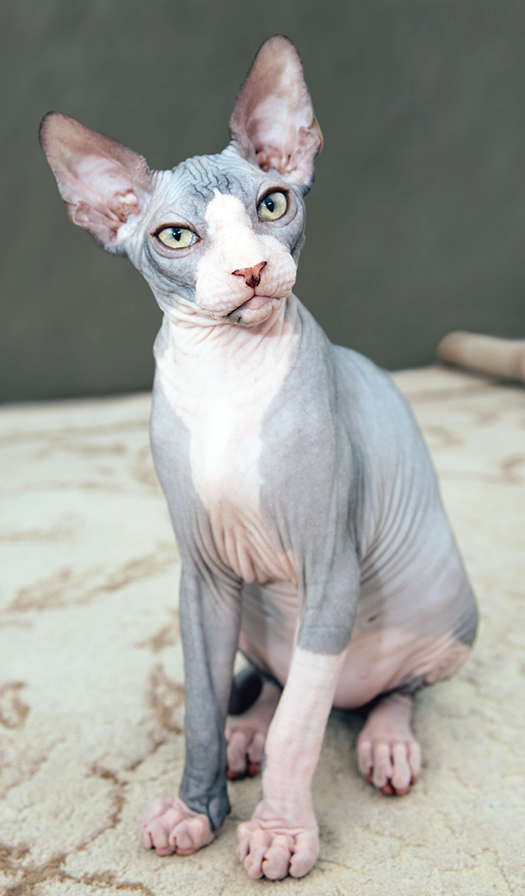Hypertrophic cardiomyopathy is a devastating disease that causes the heart muscle to thicken and makes it less efficient. The disease is most prevalent in Chartreux, British Shorthair, Maine Coon, Persian, Ragdoll, and Sphynx cats, with genetic mutations believed to be a likely cause in most cases.
Researchers at North Carolina State University recently identified such a genetic defect in Sphynx cats. The Alstrom syndrome protein 1 (ALMS1) gene codes for a unique protein whose function is not fully understood but is likely involved with metabolism, cell differentiation, and replication, including effects on perinatal cardiomyocytes (heart muscle cells). A mutation inhibiting this gene and leading to a decreased production of the protein was shown to be associated with heart disease in mice and humans.
A family of Sphynx cats that developed hypertrophic cardiomyopathy showed this genetic mutation in most of them. The researchers compared the family of Sphynx to normal cats of other breeds, concluding that the genetic variant was primarily in the affected Sphynx. Unfortunately, normal Sphynx were not included in the study, making it difficult to say whether this defect is found in most Sphynx cats.
Cats with this mutation varied greatly in the age of onset and the severity of disease. In humans with this mutation, many additional factors are involved in cardiac disease development, which is likely to be the case in cats as well.n
Meurs, K.M., et al. A deleterious mutation in the ALMS1 gene in a naturally occurring model of hypertrophic cardiomyopathy in the Sphynx cat. Orphanet J Rare Dis 16, 108 (2021).




